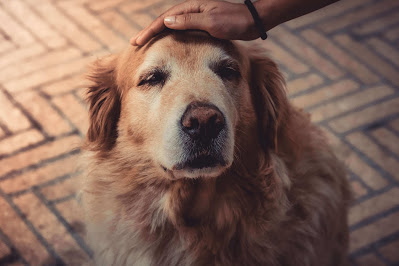Tips for Keeping Your Aging Dog Healthy and Happy
1. Regular vet checkups
It's important to schedule regular checkups with your veterinarian to monitor your senior dog's health. Senior dogs are more susceptible to various health issues such as arthritis, dental disease, and cancer, among others. Your veterinarian can conduct a physical exam and recommend appropriate tests to detect and manage any health issues early on.
2. Proper nutrition
Senior dogs have different nutritional needs than younger dogs. Their metabolism slows down, and they may have difficulty digesting certain foods. It's important to provide your senior dog with a balanced diet that is appropriate for their age, weight, and health conditions. Look for dog foods that are specifically formulated for senior dogs, as they contain the right balance of nutrients to support their health.
3. Regular exercise
Even though senior dogs may not be as active as they once were, regular exercise is still important for their health and well-being. Exercise helps maintain muscle mass, joint mobility, and cardiovascular health. You can take your senior dog on leisurely walks or swims, or play gentle games with them to keep them moving.
4. Comfortable sleeping arrangements
Senior dogs may have trouble getting comfortable or have specific sleeping needs. Providing them with a comfortable and supportive bed can help improve their sleep quality and overall comfort. Additionally, some senior dogs may benefit from raised food and water bowls to help ease any discomfort while eating.
5. Joint care
Arthritis is a common issue in senior dogs, and joint care is crucial to help manage the condition. You can provide joint supplements or medication as recommended by your veterinarian, and ensure that your senior dog has access to soft surfaces to rest on. Additionally, consider adding ramps or stairs to help your senior dog get up and down from elevated surfaces such as couches or beds.
6. Mental stimulation
Senior dogs may become less active or suffer from cognitive decline as they age. Providing mental stimulation can help keep their minds sharp and reduce boredom. You can offer puzzle toys, interactive games, and even short training sessions to keep your senior dog engaged and stimulated.
In conclusion, taking care of senior dogs requires patience, understanding, and extra attention to their needs. With proper care, nutrition, exercise, and regular veterinary checkups, you can help ensure that your senior dog enjoys a comfortable and happy life.
